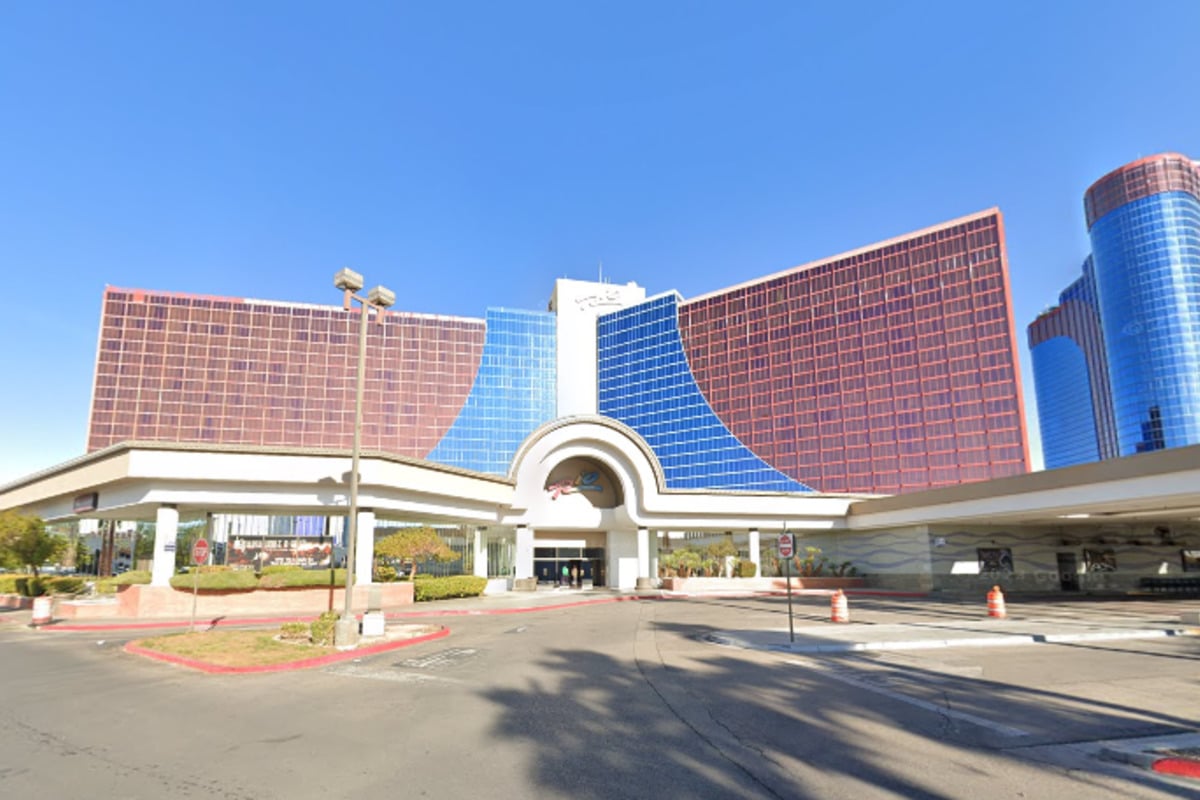Recent Las Vegas Casino Layoffs: Understanding The Causes

Table of Contents
The Impact of the Pandemic and Slowed Tourism Recovery
The COVID-19 pandemic dealt a devastating blow to the Las Vegas casino industry. The mandated closures and travel restrictions brought the vibrant entertainment capital to a near standstill, resulting in immediate and widespread Las Vegas casino layoffs. While casinos have reopened, the recovery has been slow and uneven, significantly impacting casino revenues and job security.
-
The COVID-19 pandemic brought the Las Vegas casino industry to a near standstill, leading to widespread initial layoffs. Many casinos were forced to furlough or permanently lay off a large portion of their workforce, impacting not only dealers and servers but also support staff and management.
-
Slowed tourism recovery, particularly international travel, has continued to strain casino revenues. The lack of international tourists, a significant revenue source for Las Vegas casinos, has hindered the full recovery of the industry. Even domestic travel has been impacted by economic uncertainty and changing consumer behavior.
-
Reduced spending per visitor has also impacted profitability. Even with increased tourism, visitors are spending less per trip, impacting the overall revenue generated by casinos. This is attributed to various factors including economic uncertainty and inflation.
-
Increased health and safety protocols have added operational costs. The implementation of enhanced cleaning procedures, social distancing measures, and other health and safety protocols has increased operational expenses for casinos, further squeezing profit margins.
Shifting Gambling Preferences and Competition
The Las Vegas casino industry is facing increased competition from various sources, significantly impacting revenue and employment. The rise of online gambling and the legalization of sports betting in many states have presented significant challenges to traditional brick-and-mortar casinos.
-
The rise of online gambling and sports betting presents significant competition for traditional brick-and-mortar casinos. Players now have convenient alternatives to visiting physical casinos, reducing the demand for traditional gambling venues. This is particularly true for younger demographics.
-
Younger generations are exhibiting different gambling preferences, impacting casino revenue streams. Millennials and Gen Z are less inclined to visit traditional casinos compared to older generations, preferring digital gaming experiences and alternative forms of entertainment.
-
Increased competition from other entertainment venues in Las Vegas is affecting casino attendance. Las Vegas offers a wide range of entertainment options beyond casinos, including shows, concerts, restaurants, and other attractions, diverting visitors' spending and attention away from traditional gambling.
-
Failure to innovate and adapt to evolving consumer expectations has contributed to declining profits. Casinos that fail to adapt to changing consumer preferences and integrate new technologies risk losing market share and facing further economic challenges, including potential casino job losses.
Automation and Technological Advancements in the Casino Industry
The increasing adoption of technology within the casino industry is another factor contributing to Las Vegas casino layoffs. Automation and AI are streamlining operations, reducing the need for human employees in certain roles.
-
The increasing adoption of automated systems and self-service technologies is reducing the need for human employees in certain roles. Self-check-in kiosks, automated table games, and AI-powered customer service tools are examples of technologies impacting employment.
-
AI-powered solutions are streamlining operations and potentially decreasing the workforce needed. From optimizing table layouts to predicting customer behavior, AI is transforming casino operations, allowing for increased efficiency with fewer employees.
-
Cost-cutting measures implemented by casinos are leading to workforce reductions. Faced with declining revenues and increased competition, casinos are seeking ways to reduce operational costs, and workforce reduction is often a significant component of these measures.
Economic Downturn and Inflationary Pressures
The broader economic climate plays a significant role in the financial health of the Las Vegas casino industry. An economic downturn, coupled with high inflation, impacts consumer spending and discretionary income, directly affecting casino revenue and employment.
-
A broader economic downturn and inflationary pressures have impacted consumer spending, reducing discretionary income available for gambling. When consumers face economic uncertainty or reduced disposable income, they are less likely to engage in non-essential spending such as gambling.
-
Rising operating costs, including energy and labor, are squeezing casino profit margins. Increased energy prices, coupled with rising wages, are putting pressure on casino budgets, making it harder to maintain profitability and retain employees.
-
Reduced consumer confidence leads to decreased visitation and spending. Economic uncertainty often leads to reduced consumer confidence, resulting in fewer people visiting Las Vegas and spending less money when they do.
Conclusion
Recent Las Vegas casino layoffs are a complex issue stemming from a convergence of factors, including the lingering effects of the pandemic, the rise of online gambling, technological advancements, and broader economic conditions. Understanding these underlying causes is crucial for both the casino industry and the affected workers. The future of the Las Vegas casino industry hinges on its ability to adapt to these changes, embracing innovation and addressing the evolving needs of consumers.
Call to Action: To stay informed about the ongoing impact of these factors on the Las Vegas casino industry and the job market, continue following news and analysis regarding Las Vegas casino layoffs and the broader economic landscape. Further research into the future of the industry and potential mitigation strategies for job losses is vital. Understanding the causes of these Las Vegas casino layoffs is the first step towards finding solutions and mitigating the impact on the community.

Featured Posts
-
 Is Jackbit The Best Crypto Casino For Bitcoin In 2025
May 18, 2025
Is Jackbit The Best Crypto Casino For Bitcoin In 2025
May 18, 2025 -
 Transparency Concerns State Officials Rome Trip And Corporate Funding
May 18, 2025
Transparency Concerns State Officials Rome Trip And Corporate Funding
May 18, 2025 -
 Damiano Davids Next Summer Your Streaming Guide
May 18, 2025
Damiano Davids Next Summer Your Streaming Guide
May 18, 2025 -
 Snl O Maik Magiers Ypodyetai Ton Ilon Mask Kritiki Kai Analysi
May 18, 2025
Snl O Maik Magiers Ypodyetai Ton Ilon Mask Kritiki Kai Analysi
May 18, 2025 -
 Viyna V Ukrayini Pedro Paskal Pidtrimav Zelenskogo Pislya Zustrichi Z Trampom
May 18, 2025
Viyna V Ukrayini Pedro Paskal Pidtrimav Zelenskogo Pislya Zustrichi Z Trampom
May 18, 2025
Latest Posts
-
 I Tzenifer Aniston Me Ton Pentro Paskal Fotografies Kai Antidraseis Apo Tin Koini Toys Emfanisi
May 18, 2025
I Tzenifer Aniston Me Ton Pentro Paskal Fotografies Kai Antidraseis Apo Tin Koini Toys Emfanisi
May 18, 2025 -
 Tzenifer Aniston And Pentro Paskal Mazi Se Bradini Eksodo Oi Realistikes Antidraseis
May 18, 2025
Tzenifer Aniston And Pentro Paskal Mazi Se Bradini Eksodo Oi Realistikes Antidraseis
May 18, 2025 -
 How The Past 10 Years Shaped Pedro Pascals Leading Man Status
May 18, 2025
How The Past 10 Years Shaped Pedro Pascals Leading Man Status
May 18, 2025 -
 Pedro Pascal Speaks Out On Jennifer Aniston Romance Speculation
May 18, 2025
Pedro Pascal Speaks Out On Jennifer Aniston Romance Speculation
May 18, 2025 -
 Pedro Pascals Hollywood Ascent Defining A Decade Of Success
May 18, 2025
Pedro Pascals Hollywood Ascent Defining A Decade Of Success
May 18, 2025
